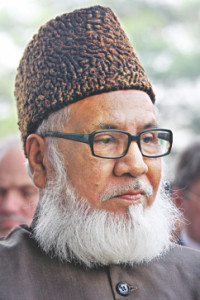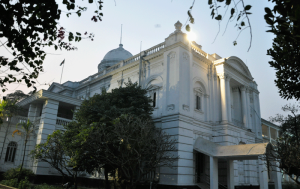Just after midnight local time on Wednesday, Motiur Rahman NIzami, the 73-year old leader of the Jamaat-e-Islamy party, was hanged to death after having been convicted for war crimes during Bangladesh’s violent independence struggle from Pakistan in 1971, media report. His final plea against the death sentenced was rejected by the Supreme Court on 5 May.
Nizami was convicted by the controversial International Crimes Tribunal for genocide, rape and orchestrating the massacre of top intellectuals during the war.
Nizami is the fifth person to be sentenced to death by the war crimes tribunal since 2013, and the fourth executed Jamaat leader. Ali Ahsan, Mohammad Mojaheed, Abdul Quader Molla, and Mohammad Kamaruzzaman were all executed on similar charges. All those sentenced to death were opposition politicians.
According to Phil Robertson, the deputy director of the Asia division at the Human Rights Watch, the trial was neither free nor fair as the court was cutting corners on fair trial standards, Al Jazeera reports.
“For example, Nizami was allowed to have only four defence witnesses as a man fighting for his life. And the court did allow defence to challenge the inconsistencies in the testimonies of prosecution witnesses,” he told Al Jazeera from Bangkok.
At the beginning of last year, an independent report into the proceedings of the International Crimes Tribunal by Geoffrey Robertson QC concluded that the Tribunal’s proceedings fell seriously short of international standards. According to Robertson, although the Court was set up entirely properly for a legitimate objective, the Act establishing the Tribunal being drafted with the assistance of the International Commission of Jurists, the Tribunal is in practice ordering the execution of the governments’ main opponents.
Media report that the controversial execution raises fears of fresh political violence. In 2013, the convictions of Jamaat-e-Islami leaders by the tribunal triggered some of Bangladesh’s most deadly political violence in decades, with hundreds of people killed, mostly in clashes between Islamists and police. Jamaat-e-Islami reportedly called for a nationwide strike on Thursday in protest of the execution.



